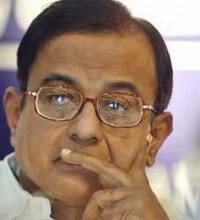 The Union Finance Minister, Shri P. Chidambaram today launched the operations of India Infra Debt Limited (Infradebt), the first Infrastructure Debt Fund (IDF) under the NBFC structure by handing over the first IDF – NBFC license to Infra Debt in presence of the promoters, ICICI Bank, Bank of Baroda, Citibank and Life Insurance of Corporation (LIC).
The Union Finance Minister, Shri P. Chidambaram today launched the operations of India Infra Debt Limited (Infradebt), the first Infrastructure Debt Fund (IDF) under the NBFC structure by handing over the first IDF – NBFC license to Infra Debt in presence of the promoters, ICICI Bank, Bank of Baroda, Citibank and Life Insurance of Corporation (LIC).
ICICI Bank (together with a wholly-owned subsidiary) is the largest shareholder in Infradebt with 31% holding followed by Bank of Baroda at 30%, Citibank at 29% and LIC at 10%. Infradebt would seek to raise debt capital from domestic as well as foreign resources and would invest in infrastructure projects under the Public-Private Partnership model that have completed one year of operations. Infradebt will expand and diversify the domestic and international sources of debt funding to meet the large financing needs of the infrastructure sector, thereby giving an impetus to the creation of the infrastructure necessary to drive India’s growth.
Speaking on this occasion, the Finance Minister Shri Chidambaram emphasized the need to meet the financing requirements of the Infrastructural deficit. Infrastructure spending in the 12th Five Year Plan is projected at USD 1 trillion against about USD 500 billion in the 11th Five Year Plan. The share of private investment in the total investment in infrastructure has increased significantly from 22 per cent in the Tenth Plan to 38 per cent in the Eleventh Plan and is projected at 47 per cent during the Twelfth Plan. To mobilize the resources of this tune, the Finance Minister said that many more institutions are required to share this responsibility. The Finance Minister asked the promoters of the India Infra Debt Limited (Infradebt) to provide sound management to make these projects successful.
The Finance Minister Shri Chidambaram said that that financing investments of this order with significant participation from the private sector will require adoption of innovative ways of financing. He said that the Government has initiated several major steps in this direction. Some of these steps are summarized as under:
• The Government has set-up the Cabinet Committee on Investments (CCI) with the Prime Minister as the Chairman to expedite decisions on approvals/clearances for implementation of projects. This is likely to improve the investment environment by bringing transparency, efficiency and accountability in accordance of various approvals and sanctions.
• The Government is also promoting Public Private Partnerships (PPPs) as an effective tool for bringing private sector efficiencies in creation of economic and social infrastructure assets and for delivery of quality public services. The Viability Gap Funding Scheme has been further strengthened by adding many new sectors like modern storage, education, health, irrigation etc.
• One major problem faced by banks while disbursing loans to infrastructure projects is the asset liability mismatch inherent with these projects. Therefore many such projects are denied financing by banks. IDFs through innovative means of credit enhancement is expected to provide long-term low-cost debt for infrastructure projects
• The cost and tariff of Infrastructure services are likely to go down as a result of low cost long term debt provided by IDFs. Further, buy-out guarantee from Project Authority will enable IDF-NBFC to maintain zero NPAs. The taking over of existing bank debts by IDFs will release an equivalent volume for fresh lending by banks to infrastructure projects.
• The Government has also allowed the issue of Tax Free Bonds amounting to Rs. 54,500 crore for the FY 2012-13, doubled from Rs. 30,000 crore in FY 2011-12. These bonds would mobilize much needed long-term funds for the infrastructure development.
